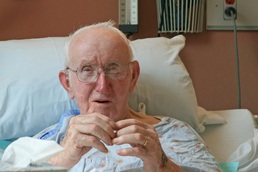Early dementia diagnosis needs to be made a priority, says Alzheimer's Society

The Alzheimer’s Society have criticised a NICE (National Institute for Health and Clinical Excellence) report on support for dementia carers for failing to highlight early diagnosis as the most important step to take on the way to more effective care and treatment.
NICE have approved a set of three targets to be piloted as part of the NHS Quality and Outcomes Framework (QOF) from 2014. The targets are focused on the registering and assessing of dementia carers and look to record the percentage of patients with dementia who have the contact details of a named carer on their record, the percentage of dementia carers who have had an assessment of health and support needs in the last 12 months, as well the maintenance of a register of patients who care for a person with dementia.
Despite welcoming these objectives, Alzheimer’s Society policy manager Louise Lakey was disappointed the NICE targets have not included early diagnosis of dementia as one of the health sector’s key goals:
“While we welcome targets for GPs to help them support carers, we are disappointed that encouraging the early diagnosis of dementia has been ignored. People can battle for years to get a formal diagnosis. Yet a diagnosis allows people to make sense of what is happening to them, gives vital access to services and reduces the costs of crisis care. GPs are the gatekeepers to making this happen. Not including an indicator to improve early diagnosis is a missed opportunity.
“By 2021 there will be a million people living with dementia. It’s crucial that the QOF is reformed to support GPs to improve diagnosis rates.”
Latest News
 29-Jul-24
Dementia Bus gives carehome.co.uk staff insight into life with dementia
29-Jul-24
Dementia Bus gives carehome.co.uk staff insight into life with dementia
 01-Mar-24
Find out the top care homes in 2024
01-Mar-24
Find out the top care homes in 2024
 21-Mar-23
UK's top care homes in 2023 revealed
21-Mar-23
UK's top care homes in 2023 revealed
 03-Jan-23
carehome.co.uk launches free care helpline
03-Jan-23
carehome.co.uk launches free care helpline
 13-Dec-22
5 mins with Emily Whitehurst, chief operating officer for Constantia Healthcare
13-Dec-22
5 mins with Emily Whitehurst, chief operating officer for Constantia Healthcare